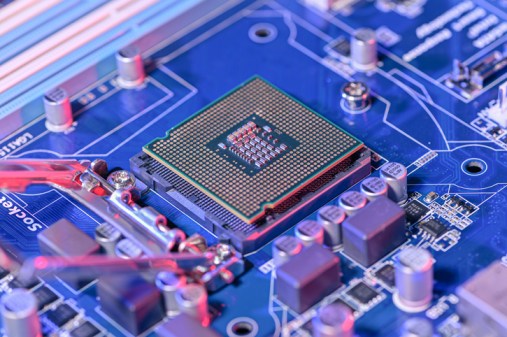IT and tech industry groups applaud passage of semiconductor CHIPS Act

A bipartisan bill intended to boost domestic semiconductor manufacturing and help the U.S. compete with China in the development of cutting edge technologies has passed the House and Senate and will soon become law.
The legislation, known as “CHIPS and Science Act,” passed 243-187 in the House Thursday, and includes approximately $52 billion in government subsidies for U.S. semiconductor production. It also includes $24 billion in investment tax credits for chip plants and other funding to spur innovation and research of other key U.S. technologies.
The IT industry and those that rely on it are expected to benefit significantly from the bill thanks to the increased investments and future growth.
“By investing in the domestic semiconductor ecosystem, the measure will create jobs, boost manufacturing, and spur new businesses in communities around the country, ensuring that the benefits are broadly shared across the United States,” said Jason Oxman, Information Technology Industry Council’s (ITI) President and CEO.
“Our industry will continue to partner with the U.S. government and communities across the country as the measure is implemented,” Oxman added in a press release.
Alliance for Digital Innovation Executive Director Ross Nodurft said: “ADI supports the passage of the bill. ADI is very supportive of the NIST reauthorization portion of the legislation.” He added: “It authorizes the resources that NIST needs to develop standards and guidance that agencies will need to adopt new and modern technologies like cloud and quantum computing, digital identity, cybersecurity and artificial intelligence.”
The bill authorizes a total of $9 billion in funding for the National Institute of Standards and Technology to conduct research and to develop standards for an array of future industries and technologies.
The bill, which President Joe Biden is expected to sign into law later this week, could significantly affect the federal government’s IT components supply chain along with domestic manufacturing supply chain security that is monitored by the National Institute of Standards and Technology (NIST).
IT giants and major federal government contractors like IBM are anticipating using funds from the legislation to boost growth in the sector from semiconductors.
“Our company along with many others is ready to get to work to make sure this investment accelerates U.S. leadership in semiconductor innovation and manufacturing and benefits as many Americans as possible, as soon as possible,” Arvind Krishna, IBM Chairman and CEO said in a statement.
Semiconductors, which are essential and expensive components of modern-day technology ranging from cell phones to sophisticated military systems, have seen an explosion in demand in the past decade. Supply chain issues resulting from the pandemic have contributed to a global shortage of the component.






